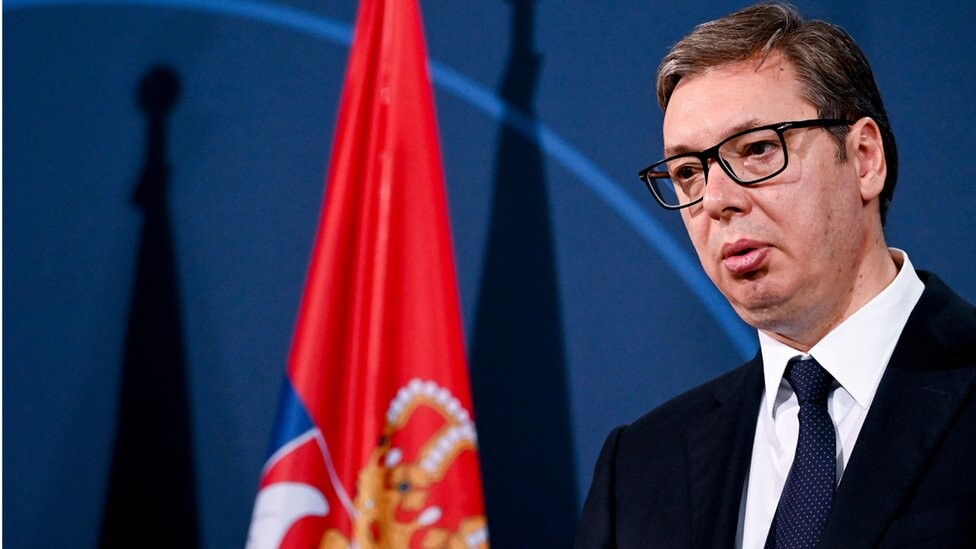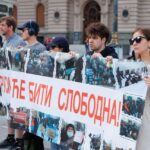The issues of Brussels and Washington’s official relations with Belgrade have recently come into an international focus. When Russia invaded Ukraine, the US and the European Union accelerated their pivot towards Serbia. “Rather than juggling the contradictory demands of pluralistic and fractious Balkan states, Western capitals focused the bulk of their efforts on a singular target,” CNN wrote in its latest review. The acclaimed news platform believes that the West’s policy was aimed at bringing Serbia back into the European fold and away from Russia, focusing more fully on supporting Ukraine. Traditionally one of Moscow’s closest allies in Europe, Belgrade has long struggled to balance its historical ties to Russia with a potential future of stronger European integration. According to CNN, Western diplomats tried to remove Serbian President Aleksandar Vučić from the orbit of his Russian counterpart, President Vladimir Putin, vowing a swifter path to EU membership and warning of isolation in case they break rank. However, CNN notes, 18 months on, the approach has been nothing but all carrot and no stick, resulting in a failure to achieve the goals initially set. Serbia has refused to join EU sanctions against Putin and has continued to pursue its own interests in the region with less and less accountability, stoking conflicts abroad to distract from discontent at home while ensuring that they will not be rebuked in the West.
Western governments have long treated Serbia as an indispensable Balkan voice, sometimes at the expense of more peripheral players, some observers say. “They seem to believe that they are bringing Serbia closer towards the EU and towards NATO and towards Western thinking and away from Russia… But that isn’t something I would say is being reflected on the ground,” said Alicia Kearns, a British lawmaker and chair of the parliamentary Foreign Affairs Select Committee. Vučić has long maintained close relations with his Russian counterpart Vladimir Putin. Speaking after a National Security Council meeting, the British MP recalled, he justified his decision not to sanction Moscow because Russia was “the only country not to have imposed sanctions against us in the 1990s.” “They supported our territorial integrity at the UN,” Vučić said, referring to Russia’s refusal to recognize Kosovo’s independence. Despite EU-backed multi-directional efforts on energy transition, Serbia remains largely dependent on Russia, having sold a majority stake of its oil company to a Russian state-owned giant Gazprom. As a result, “despite Serbia’s professed hopes to join the EU, Vučić has continued to walk a tightrope between Moscow and western powers.” Despite joining UN resolutions condemning Russia’s incursion into Ukraine, the Serbian leader has not shown much willingness to join Western sanctions. In April, the Serbian government denied reports of arms and ammunition sales to Ukraine after a Pentagon document emerged that claimed otherwise. At the time, Serbia said it was sticking to its policy of neutrality, although some Western officials took the reports as proof that their policy was working. Several analysts told CNN that Serbia had to do very little to earn the praise of American and European officials, but Vučić left behind a range of unfulfilled promises. “When we had his [Vučić’s 2020] re-election, we were all told, just wait until after the election, you’ll suddenly see that he becomes very Western- and European- oriented,” said British MP Alicia Kearns. “It didn’t happen. We were told he wouldn’t get closer to Russia. He signed a security agreement with Putin in September. Time after time, he laughs in the face of the West. And when I ask Western officials, ‘why are you so determined to let Vučić play you?’ they say he is the best option.”
“Assuming we somehow miraculously bring Serbia into the EU, with this sort of regime, you are practically bringing another Russian Trojan horse into the EU, like you have in the shape of [Hungarian Prime Minister Viktor] Orban,” said Majda Ruge, a Balkan expert.
It was implied that it is possible to influence the enlargement process, but definitely not to neutralize Russian influence in the region. In fact, the move would only help this influence expand across the EU. Edward Joseph, a foreign policy lecturer at Johns Hopkins University who served for over a decade in the Balkans, told CNN that “the question here is: Who in the Biden administration still believes that Vučić is this partner,” recalling the recent sanctions against Aleksandr Vulin, an outspoken Kremlin supporter, who leads the Serbian intelligence agency, as evidence that Washington is “no longer captive” to any illusions about the Serbian president. But whether this will lead to a change of policy remains unclear.
Meanwhile, Edward Joseph believes Vučić is raising the stakes. He banned arms exports from the country for 30 days, saying that “everything must be prepared in case of aggression against the Republic of Serbia.” According to the U.S.-based professor, this is a demonstration of readiness to go into conflict, which is why he allegedly needed to immediately stop all arms exports he claims are essential to national security. This position on the part of Serbia’s President saw certain public support. At a Crvena Zvezda football match, attended by Vučić, nationalist Serb fans showcased a banner with the belligerent inscription: “When the army returns to Kosovo.”
Thus, it is possible to conclude that a number of decision-making centers in the West are reassessing the values of current relations with Belgrade. More and more voices are being heard promoting the need to boost pressure on Serbia’s President Aleksandar Vučić to make him shift his policy towards a number of neighboring states and adhere to common European values and an agreed European position on Russia’s aggression. Meanwhile, it turns out that Moscow’s influence on Belgrade’s politics is so vast that even if Vučić tries to make some adjustments to his stance, they may cost him dearly. Until now, Vladimir Putin has been just as popular among the Serbs as their own leader. Openly condemning the Kremlin’s actions could cost the ruling party the existing trust of many voters. This became possible primarily because Belgrade is home to the largest number of Russian intelligence assets in Europe, who have deeply penetrated the ruling elite, local businesses, media, and the civic sector. Practically all leading media platforms in Serbia to a greater or lesser extent remain under Russian influence. Hence the high public ratings of the Kremlin boss, who enjoys positive coverage by both pro-government and opposition media. Z and V, the symbols of Russia’s Nazi ideology branded as “Ruscism”, as well as the symbols of Russian Orthodoxy, one of the pillars of this ideology, can be found in many corners of Belgrade and other cities across Serbia. Public life in the country is practically imbued with symbols of friendship with Russia, despite the latter’s large-scale aggression targeting Ukraine, the nation that co-founded the UN, the organization tasked precisely with preventing new wars. Without a serious de-Russification of all Serbian mass media, it is impossible to hope for a change in public opinion in the country regarding Russian aggression, which means that it is rather difficult to expect any shifts of Belgrade’s position in relation to Moscow and Brussels.



